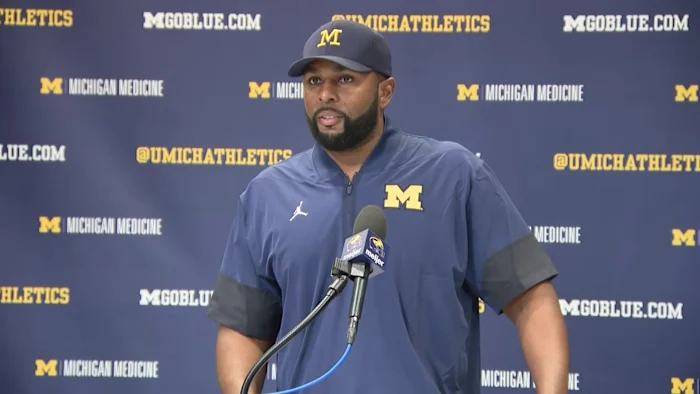By Sunday Ejike
Copyright tribuneonlineng

Justice Emmanuel Danjuma Subilim of the National Industrial Court sitting in Abuja has restrained the Petroleum and Natural Gas Workers Association of Nigeria (PENGASSAN) from embarking on its planned industrial action against Dangote Petroleum Refinery and Petrochemicals FZE.
Justice Subilim, in a ruling on an ex-parte application filed by Dangote Refinery on Monday, specifically restrained the Nigerian National Petroleum Company Ltd. (NNPCL), the Nigerian Midstream and Downstream Petroleum Regulatory Authority, and the Nigerian Upstream Petroleum Regulatory Commission, who are defendants in the suit, from cutting crude and gas supply to Dangote Refinery.
George Ibrahim, SAN, from Ogwu James Onoja’s law firm in Abuja, argued the application on behalf of the claimant and secured the order against the defendants.
The senior lawyer, in the ex-parte motion, applied for an order of interim injunction restraining the 1st Defendant, its members, agents, servants, privies, representatives, assigns or whatsoever and howsoever called, from calling or directing the halt of crude and gas supply to the claimant under any guise and/or embarking on any industrial action against the claimant with a view to crippling, blocking roads or obstructing vehicular movement, shutting down operations of the claimant or licensees of the 2nd to 4th defendants as contained in the 1st Defendant’s directives dated 26 September 2025, or by any other means frustrating the business and activities of the claimant/applicant pending the hearing and determination of the motion on notice.
“An order of interim injunction restraining the 2nd–4th Defendants, their employees, members, agents, servants, privies, representatives, licensees, assigns or whatsoever and howsoever called from giving effect to the directives of the 1st Defendant to halt the supply of crude and gas to the claimant, or joining, continuing, embarking on, or in any manner participating in the planned industrial action of the 1st Defendant, its affiliates and cronies, or any other strike whatsoever against the claimant/applicant with a view to frustrating its business and operations pending the hearing and determination of the motion on notice.”
Ibrahim argued that the applicant is a petroleum production and distribution company licensed to own, operate, and produce petroleum and petrochemical products for the general consumption of the Nigerian public, and whose business provides essential services to the Nigerian economy and the public at large.
He said that in recent times, there had been incidents of sabotage by some employees of the claimant at its plant, raising grave health and safety concerns.
According to him, the management of the claimant came to the irresistible conclusion that there should be a reorganisation at the plant, which led to the termination of some staff appointments. This, he said, was communicated to all staff via a memo dated 25 September 2025.
The senior lawyer said that in the early hours of Friday, 26 September 2025, the claimant received online reports alleging that Nigerian workers were laid off because they joined the 1st Defendant’s union.
According to him, the management of the claimant, in a press statement, refuted the report and explained that it was not averse to its workers unionising, as that is their constitutional right. He clarified that the company employs over 3,000 Nigerians, and that only a negligible number of staff were affected by the reorganisation due to sabotage and safety concerns.
The lawyer asserted that by a letter dated 26 September 2025 and circulated online, the 1st Defendant, through its General Secretary, Comrade Lamumba Ighotemu Okugbawa, wrote to the Honourable Minister of Petroleum and Gas, warning that its members would take action to force the claimant to its knees if it failed to recall the affected staff, whom the letter erroneously described as numbering over 800.
“The 1st Defendant issued a press statement on 26 September 2025 wherein it erroneously described the laying off of the workers by the claimant as anti-labour practices, alleging that the workers were being victimised for joining the union.
“Irrespective of the explanation offered by the claimant in Exhibit DR3, the 1st Defendant became further provoked and directed its executives and members in the licensees of the 2nd–4th Defendants, through whom the claimant accesses crude and gas for its plant, to stop supplying gas to the claimant.
“The 2nd–4th Defendants are on standby to carry out the directives of the 1st Defendant through their agents and licensees as mentioned in Exhibit DR6, with a view to stopping the supply of gas and crude oil to the claimant, in order to halt its business and operations as threatened, unless the Honourable Court intervenes.
“The 1st Defendant is determined to make good its threat to shut down operations of the claimant, knowing the strength of its membership across the country, unless the Honourable Court intervenes.
“The 1st Defendant, its members and protégés in the services of the 2nd–4th Defendants, have perfected plans to embark on an industrial action that will cripple the operations and services of the claimant to the Nigerian public as well as the economy.
“The 1st Defendant has not engaged the claimant with respect to any dispute before championing and calling for an industrial action, contrary to the extant laws of the Federal Republic of Nigeria.”
In his brief ruling on the ex-parte application, Justice Subilim held that the balance of convenience was in favour of the applicant, as the continuation of the strike would irreparably damage its business and cripple the provision of essential services to the Nigerian public.
The Judge held that it was in the interest of justice for the Court to restrain the respondents, in order to preserve industrial peace and aid the continuous provision of essential services to the public, pending the hearing and determination of the substantive suit.
Justice Subilim, while granting the restraining order, directed that it be served on the defendants immediately along with the motion on notice, adding that the restraining order shall last for seven days only. He subsequently fixed 13 October for the hearing of the motion on notice.
ALSO READ TOP STORIES FROM NIGERIAN TRIBUNE



